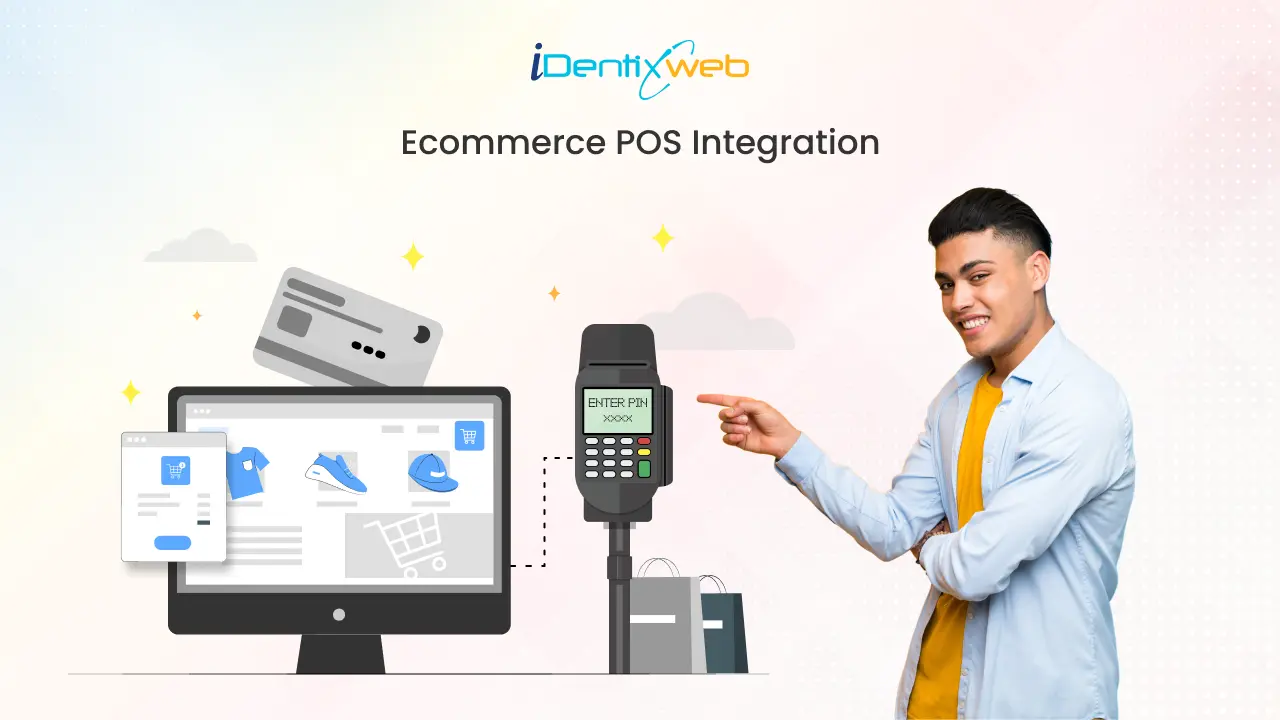
Running both online stores and physical shops can often lead to stock mix-ups, lost sales, and frustrated customers. ecommerce POS integration solves these issues by seamlessly connecting your online platform with your point-of-sale (POS) system.
This integration ensures that all data, including sales, inventory, and customer information, flows smoothly between your in-store and online operations, reducing inefficiencies and errors.
This article will explore the importance of POS and ecommerce integration, its crucial role for businesses, and how to implement it for smoother operations and enhanced customer experiences.
What is Ecommerce POS Integration?
Ecommerce POS integration refers to connecting your ecommerce platform (such as Shopify, WooCommerce, Magento, etc.) with your physical POS system, allowing seamless data synchronization between both systems. This integration ensures that your inventory, sales data, orders, and customer profiles are updated automatically across all channels.
Without integrated POS and ecommerce, businesses often struggle with data discrepancies, like over-selling a product that is no longer available. With integration, you can avoid these issues and provide a consistent shopping experience, whether customers are buying online or in-store.
Key Benefits of Ecommerce POS Integration
Accurate Inventory Management
Integration automatically syncs your inventory in real time. This ensures that both your online store and physical shop are in sync, avoiding the common issue of selling products that are out of stock.
Improved Customer Experience
Customers can have a consistent experience across both channels. Returns can be handled seamlessly, whether the product was purchased online or in-store.
Streamlined Operations
Automated updates and centralized data allow your team to focus on business growth, rather than spending time on manual updates.
Data-Driven Insights
By consolidating sales data from all channels, you gain valuable insights into customer behavior, sales trends, and inventory needs, enabling you to make smarter business decisions.
Scalability
As your business grows, POS integration with ecommerce allows you to easily scale your operations without adding complexity. New products, locations, or sales channels can be added seamlessly.
Why Ecommerce POS Integration is Crucial for Your Business
In the competitive world of online and offline retail, having an integrated system can give you a significant edge.
Here’s why businesses are increasingly adopting POS system ecommerce integration:
Fewer Errors
Manual inventory tracking and order processing can lead to errors. Integration eliminates these errors, ensuring accurate product availability and order fulfillment.
Enhanced Efficiency
Automating data sync between your ecommerce and POS systems saves time and reduces the risk of human error. Employees can focus on more strategic tasks rather than on administrative data entry.
Better Customer Loyalty
A seamless experience between online and offline channels encourages repeat business. Customers appreciate the ability to shop online and return items in-store, or vice versa, with no hassle.
Real-Time Sales Data
Integration ensures that sales and stock levels are updated in real time across all platforms, which makes it easier to adjust your marketing strategies, stock orders, and promotions based on up-to-the-minute data.
How to Implement Ecommerce POS Integration

To integrate your Ecommerce platform and POS system, follow these key steps:
Step 1: Choose the Right POS System
Select a POS system that integrates well with your ecommerce platform. Many platforms like Shopify offer native POS solutions, while others may require third-party integrations.
Step 2: Select an Integration Tool
For non-native POS systems, use tools or middleware like Zapier or API connectors that allow your POS system to connect with your ecommerce platform.
Step 3: Synchronize Data
Once connected, ensure that your product catalog, customer profiles, and inventory levels are synced across your online and offline channels.
Step 4: Test the System
Before going live, run tests to ensure that transactions, inventory updates, and customer data are syncing properly across both platforms.
Step 5: Train Your Team
Ensure your staff understands how to use the integrated system, from processing online and in-store orders to handling returns and tracking inventory.
Best Ecommerce POS Solutions
1. Shopify POS
Perfect for Shopify merchants, this POS solution integrates seamlessly with your Shopify store, providing a unified experience for inventory, sales, and customer data.
2. Square POS for WooCommerce
Square offers a reliable POS solution for WooCommerce users. It integrates with your WooCommerce store to sync sales, inventory, and customer data.
3. Magestore POS for Magento
This POS system is designed explicitly for Magento users, offering a seamless connection between online and physical sales channels.
4. Oliver POS for WooCommerce
A flexible and robust POS system for WooCommerce merchants. Oliver POS offers a range of features to optimize your sales and inventory management.
5. Clover POS for PrestaShop
Clover POS seamlessly integrates with PrestaShop, offering a user-friendly platform for managing both in-store and online operations.
The Final Word: Ecommerce POS Integration
POS ecommerce integration is a powerful solution that brings efficiency, accuracy, and growth to your business. Whether you run a small boutique or a large enterprise, integrating your POS system with your eCommerce platform ensures that your operations run smoothly and your customers enjoy a consistent, seamless experience.
By adopting an integrated system, you’re setting your business up for scalability and success, making it easier to manage your sales channels, enhance customer satisfaction, and stay ahead of the competition.
Start streamlining your Shopify store’s sales and inventory with us. As Shopify experts, we help you seamlessly integrate Shopify POS for better management.
FAQs Ecommerce POS Integration
1. What is POS in ecommerce and how does it work?
POS (Point of Sale) in eCommerce refers to the system that enables businesses to process transactions, manage sales, and track inventory both online and offline.
2. How does POS integration improve ecommerce operations?
POS integration connects your physical store with your online platform, ensuring real-time syncing of inventory, customer data, and sales, enhancing overall operational efficiency.
3. Why is a POS system important for online retailers?
A POS system allows ecommerce businesses to manage transactions, streamline inventory, and offer a consistent customer experience across multiple sales channels.
4. Can a POS system be integrated with ecommerce platforms like Shopify?
Yes, many ecommerce platforms like Shopify offer native POS systems or integration with third-party POS solutions to seamlessly connect in-store and online sales.
5. What are the benefits of POS integration for inventory management?
POS integration ensures that stock levels are automatically updated across both online and offline stores, preventing overselling and ensuring accurate inventory management.


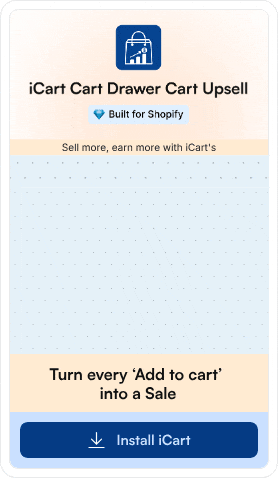
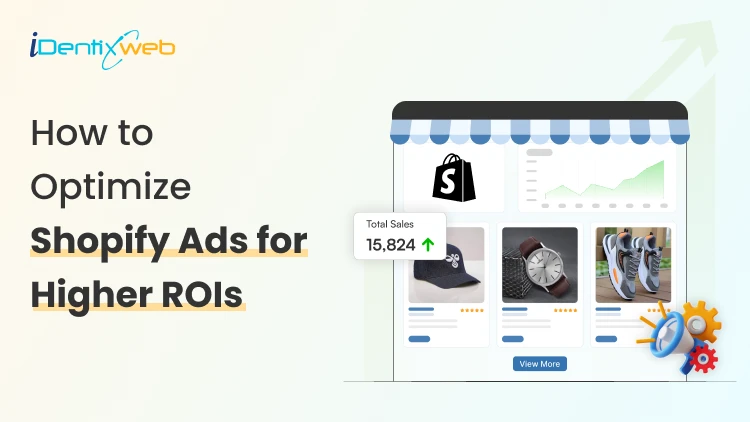
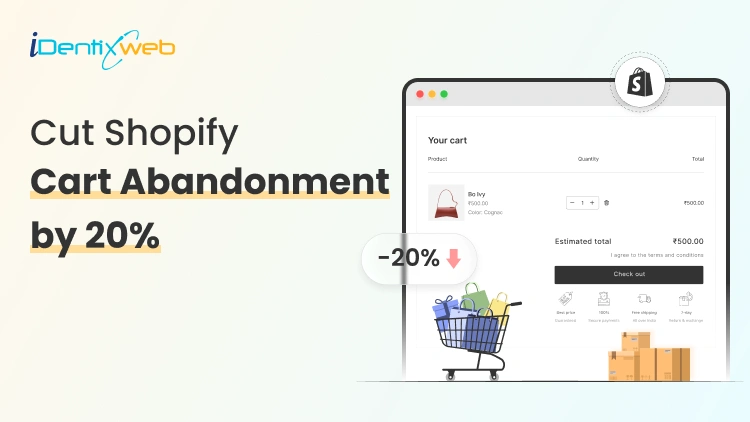
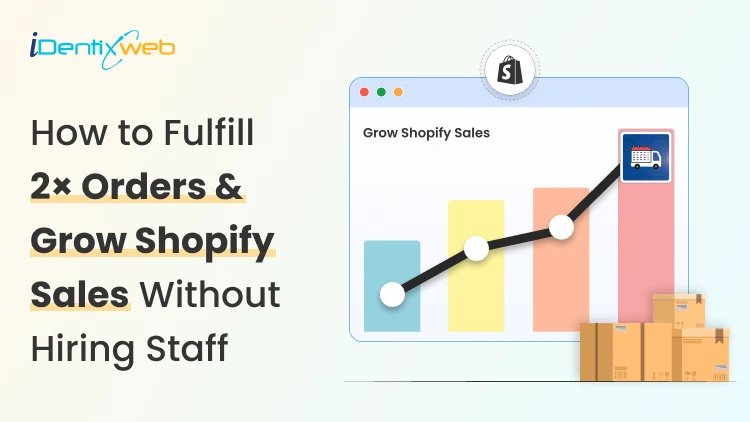

About the author
Bhavesha Ghatode
Explore Content with Bhavesha, a passionate and dedicated technical content writer with a keen understanding of e-commerce trends. She is committed to sharing valuable insights, practical assets, and the latest trends that can help businesses thrive in a competitive environment.